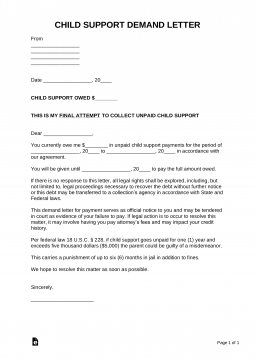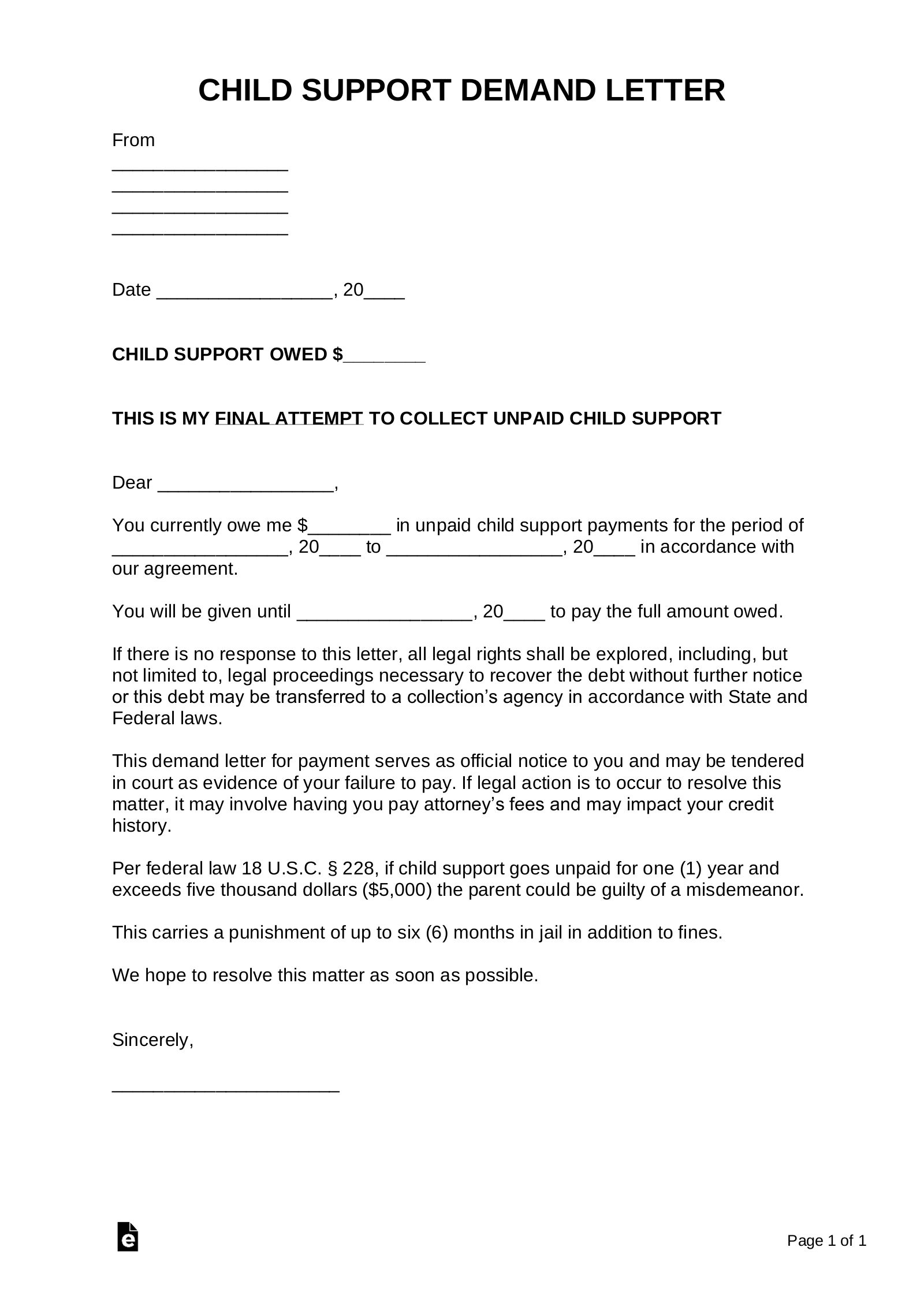Updated September 20, 2023
A child support demand letter is a reminder sent to a parent who is late on child support payments. If it does not succeed in compelling the parent to pay, then this letter can serve as evidence in court.
Table of Contents |
What to Include?
Since the purpose of this letter is to provide notice of an overdue child support payment, it should be brief with just a couple of key elements. The letter should clearly indicate:
- The amount that is past due and when was it due
- When the divorce settlement that dictates child support was finalized
While is better to strike a civil tone than it is to set out on a warpath, the best letters are statements of fact that are mostly free of sentiment. Some parents choose to make their letters a bit more personal – perhaps describing why the support payments are instrumental to their children or extending an olive branch in a sympathetic sentence about the challenge of making support payments.
How to Recover Unpaid Child Support (3 steps)
You must be registered with the Department of Human Services office (Find Your State) where you are located. They will be the department that will be assisting you in the effort of being paid.
1. Complete the Letter of Demand
Make sure to include any settlement agreement or court order that legally obligates the payor as well as for instructions on how to make payment.
- 14-Days – Minimum time period the paying parent has to respond.
- Writing Tip – It is best to make the letter as scary and intimidating as possible. You want to give the perception that a court hearing is around the corner.
2. Send the Letter
When sending the letter it is best to do via certified mail with return receipt. This will provide evidence to any court or the DHS that notice has been properly given. As with all certified mail, the recipient must sign to acknowledge they received the mail. Afterward, the sender will receive a copy of the signature. Make sure to keep this copy.
3. Contact the DHS (if unpaid)
It is best to contact the DHS in the chance that the parent does not pay. Depending on the State, they will either begin legal proceedings to get the owed parent paid.
In accordance with the Child Support Enforcement Act of 1984, if a parent does not pay the State has the right to garnish wages along with other restrictions in order to collect.[1]
Parent Lives in Another State
In accordance with the Uniform Interstate Family Support Act, the State’s DHS and local authorities must comply with the orders of the original judgment.[2]
Punishment for NOT Paying
If child support goes unpaid for one (1) year and exceeds five thousand dollars ($5,000) the parent could be guilty of a misdemeanor.[3]
This carries a punishment of up to six (6) months in jail in addition to fines.
In addition, the parent may not leave the State or the country. If he or she tries to do so it comes with the penalty of fines and up to two (2) years in prison.
Sample – Child Support Demand Letter
February 15, 2020
Dear Steven Jones,
This letter serves as a formal reminder of your obligation to provide $625.00 per month to me in child support, which is due on or before the first of each month, as outlined by the terms of our finalized divorce agreement of April 1, 2013.
As of the date of this letter, I am still awaiting the payment for May 2018. While I understand that this monthly contribution may place a financial strain on you, I remind you that it also serves as essential support for our two children. Without this assistance, I am unable to provide for all of their expenses.
I am hopeful that we can resolve this promptly, and that it will not be necessary to take any further legal steps.
Sincerely,
Jane Adams


